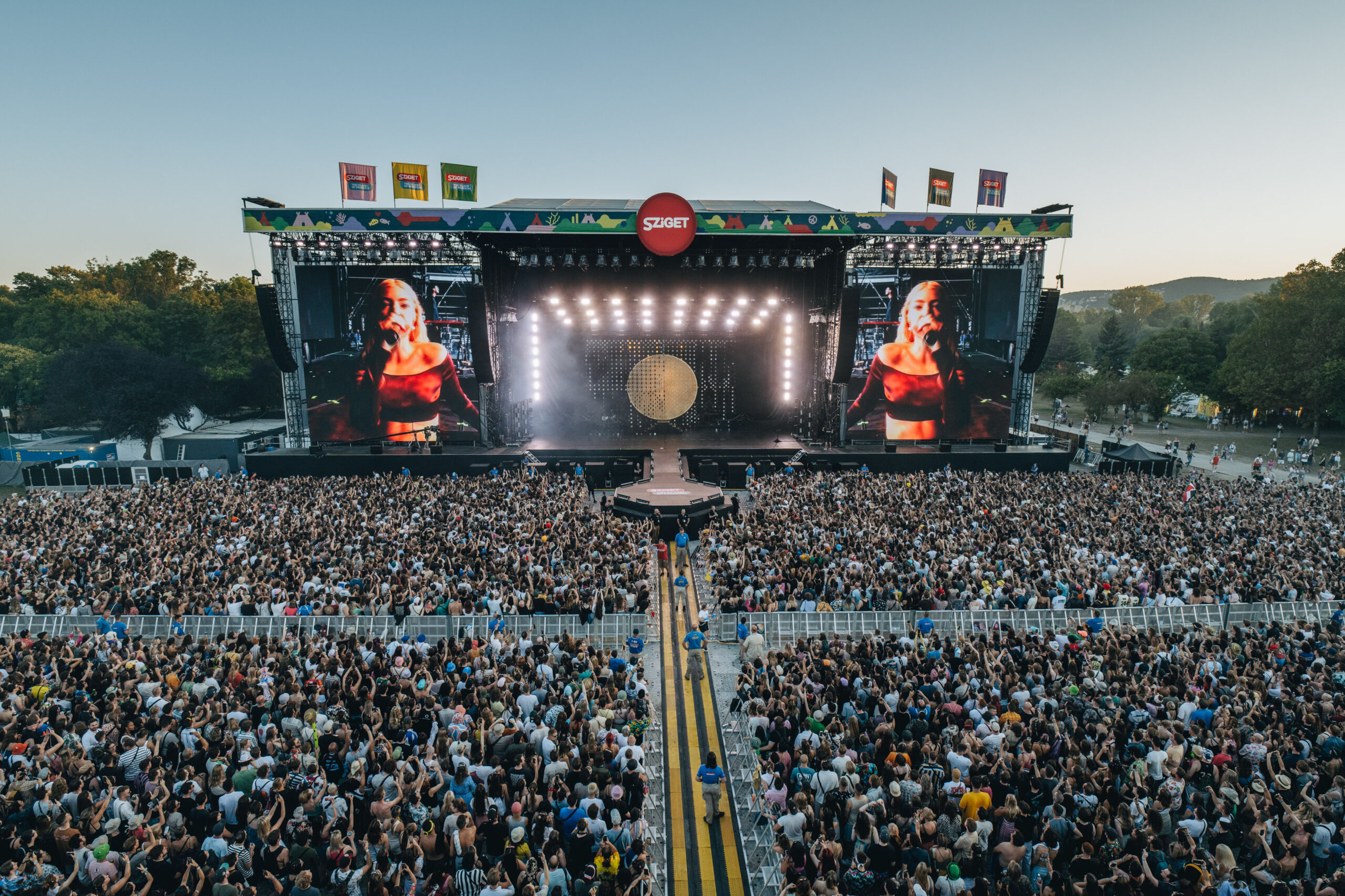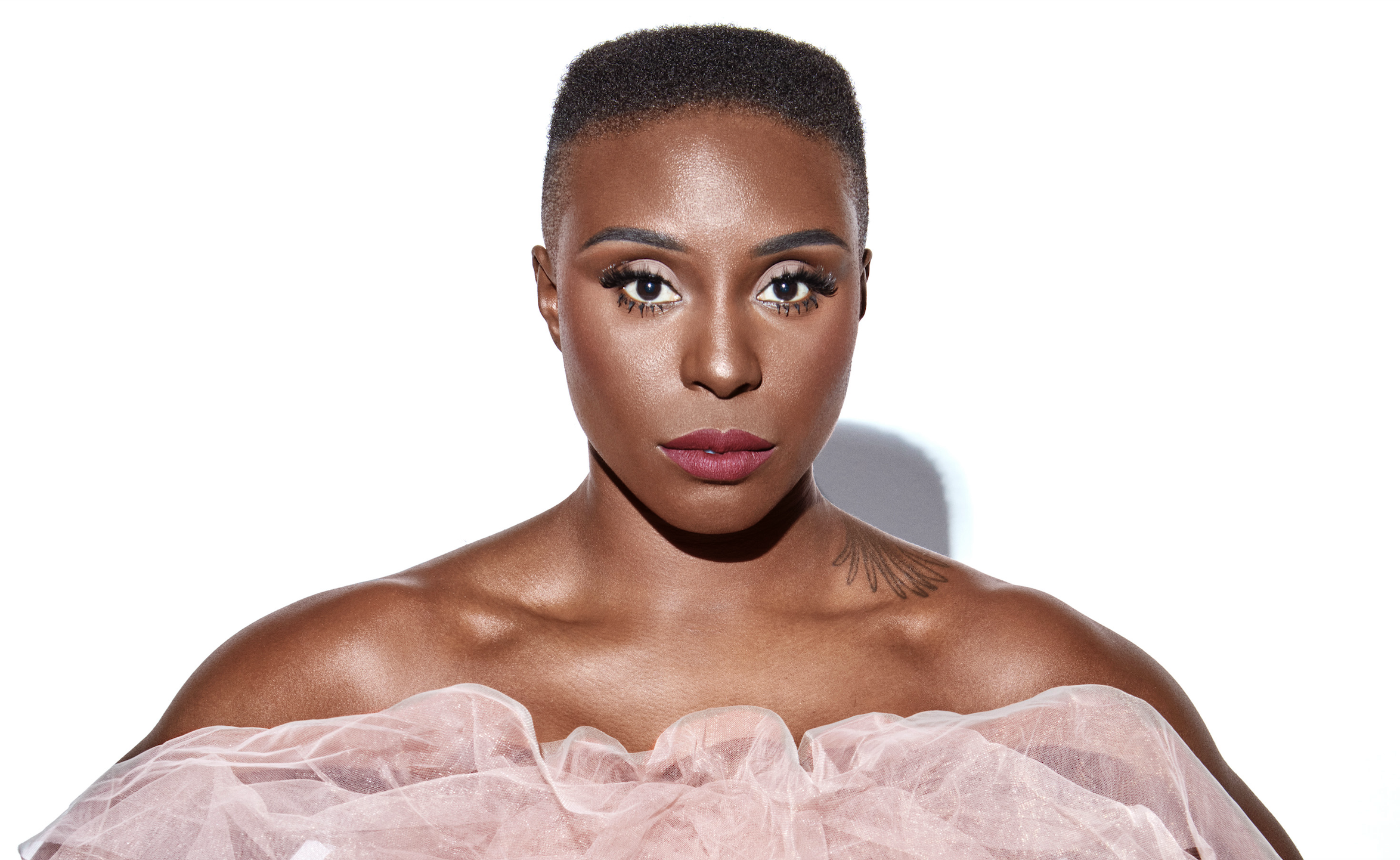Foto-© Warner Music Germany
Los ging‘s mit 2013 mit Green Garden. Soul, Gospel und Jazz kamen ganz wunderbar zusammen und die Stimmung war feierlich und verträumt zugleich. Obendrauf dieses Lächeln im Video – Killer! Unvergessen auch das Debütalbum Sing To The Moon. Da brillierte eine Frau, die nicht auf den Schnellschuss aus ist. Laura Mvula war schon während der Schulzeit Mitglied eines Konzertorchesters, später machte sie zu Hause in Birmingham ihren Abschluss im Fach Komposition. 2014 veröffentlichte sie Versionen ihrer Songs, die sie in den Abbey Road Studios mit dem Metropole Orkest aus den Niederlanden aufgenommen hatte. Starke Bindung zur Hochkultur offenbart sich auch am Soundtrack für eine Aufführung von Shakespeares Antonius und Cleopatra. Große künstlerische Leistung sorgte für viel Applaus bei der Kritik. Das war auch beim zweiten Album The Dreaming Room nicht anders. Die kompositorische Qualität wurde in Britannien 2017 mit dem Ivor Novello Award belohnt. Zuvor hatte der Major Sony Music die Zusammenarbeit mit Laura aus welchen Gründen auch immer beendet.
Der Irrsinn hinter allem machte die Sängerin nachdenklich, davon spricht sie im folgenden Interview. Sie brauchte nach der Krise einen neuen Start. Jetzt ist sie zurück, offensiver denn je. Die Farben sind bunt, der Rhythmus ist omnipräsent und Pop spielt mehr denn je eine Rolle. Laura will raus auf die Tanzfläche, wie wir alle gerade. Es ist nicht der Sound der Gegenwart, der sie antreibt. Die Musik klingt wie in Clubs und Discos, als Hip-Hop, Techno und House noch nicht richtig tobten. Prince, den Laura persönlich kennengelernt hat, wird als Einfluss immer offensichtlicher, dazu gesellen sich Flashs von Janet Jackson, The System, Paula Abdul, Grace Jones oder, etwas jünger gesprochen, Santigold. In What Matters begleitet sie mit Simon Neil von Biffy Clyro ein für sie eigentlich stilfremder Rock-Verbündeter. Aber es passt, wie alles auf dem Album. Bring the noise.
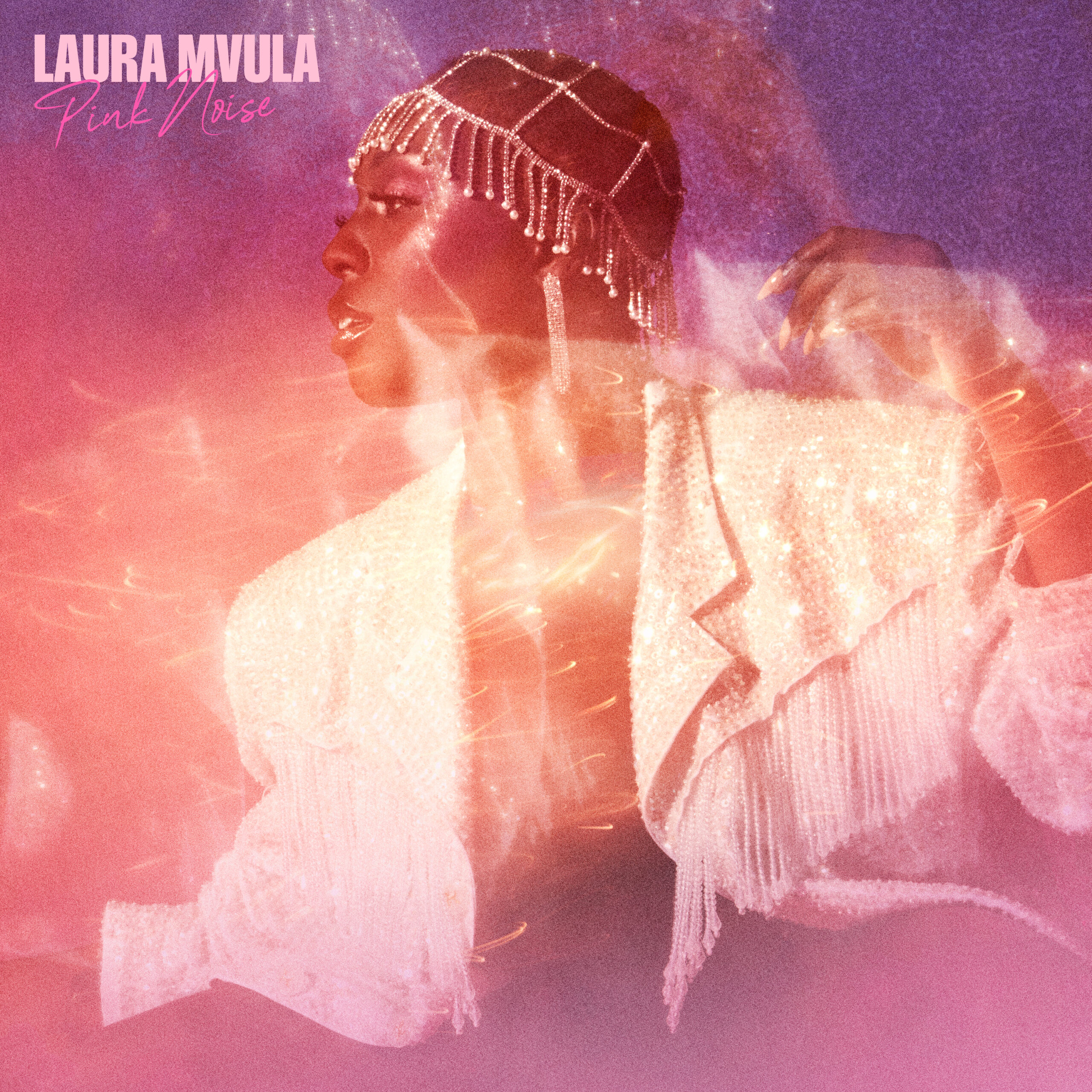 When did work on the album start and when did it finish?
When did work on the album start and when did it finish?
It started in 2019 when I‘ve finally forced myself out of writer‘s block, which was a whole process. At the beginning of this year we were looking at mixing and mastering. That‘s a couple of years. The first song was Safe Passage and I remember I had spent so long trying to figure out where to start. I had no idea and I was confused why I couldn‘t find any real inspiration, which is ununsual for me. It‘s a scary place to be, but eventually Safe Passage arrived. I created a home studio, a really small basic setup at home and I was able to sketch out what for me was a new sound, a new way of making songs. I was determined not to sit at the piano and play a lot of big chords. I wanted it to feel much more direct and I was going to rely on rhythm and melody, that was a different approach for me. I wanted to make an album I could dance to and that‘s what this record is.
It is music similar to the one that was played in clubs around the mid-80s. It sounds positive, as if you want to say: I want to go out and enjoy myself. It sounds self-confident.
I struggle when people say that my sound is confident. When I listen to Sing To The Moon and The Dreaming Room I think of songs like She and Father, Father and That‘s Alright. These songs are more confident in the rawness. The new songs required a different kind of confidence maybe, a more commercial confidence. You know, I‘ve always had that. I‘ve always been borrowing from the soul pop eras that I was exposed to. My dad is responsible for a lot of that. He was obsessed with Earth, Wind & Fire. He didn‘t tolerate us as kids dominating in car journeys what used to be smash hits or top 100 material. That kind of thing didn‘t exist in our household. We were listening to a lot of Motown too, The Jacksons and even Sting, Peter Gabriel, Phil Collins even. I feel like I have a lot of gratitude towards the music that shaped me and I needed to express that in song form. And I guess, if I‘m honest, there was something to prove. I was upset that Sing To The Moon and The Dreaming Room didn‘t seem to have enough to make an impact in the commercial market, it felt so unfair. I knew I was going to make literally more noise in the next project.
A lot of people liked your music very much throughout the years, but it was different in 2017 when you got dropped by Sony. Directly after that you‘ve written music for the Royal Shakespeare Company production of Antony and Cleopatra. How did you deal with those ups and downs?
Yeah, it‘s the reality of the misfit, you know (laughs). I can think of those times now and recall just how strange it all was. I remember doing a David Bowie tribute concert with an orchestra at the Royal Albert Hall. At same time I can remember doing a performance for the Queen‘s birthday and going on tour with David Byrne and then winning an Ivor Novello award for the best album with The Dreaming Room and then being dropped. It was a weird time, but it was so good for me. I was being forced to stand still and take a moment to figure out what was going to be next.

You‘ve got energy and talent on the one hand, but when you go to managements, record companies or the media you don‘t always get respect.
The blessing is that I‘ve always had really good people around me. The main thing they would have to say was that I have a foundation to build on and see it that way. It was the beginning of a story. Stories change direction and to embrace the peaks and troughs and to hold them with the same level of respect, treasure them. Obviously no one likes to feel undervalued and unseen, but in some sense I think if I hadn‘t experienced that, Pink Noise wouldn‘t be as potent and as exciting and as confident, as you say, it is.
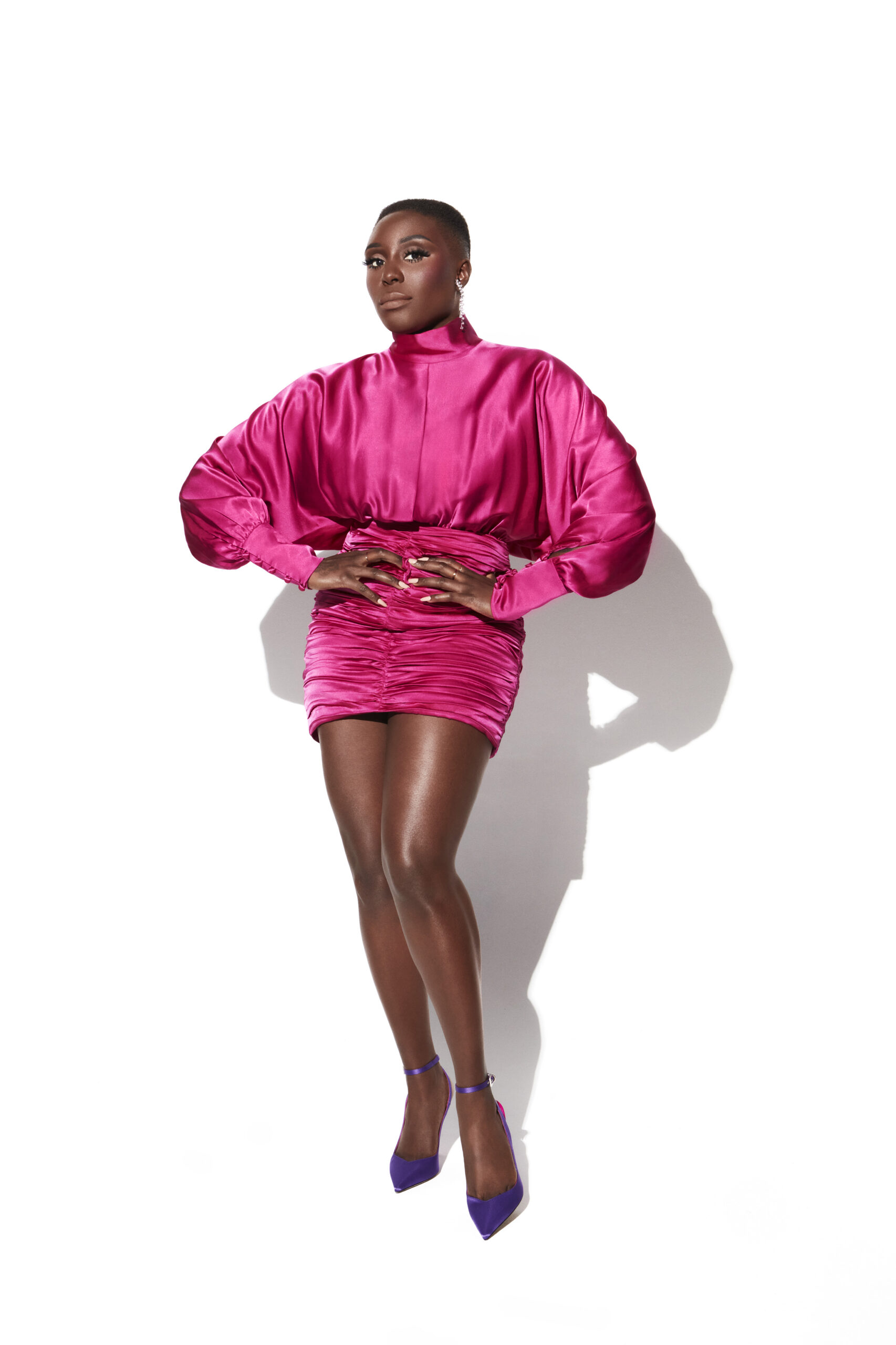 I want to stick with the problematic side of things, if I may. You went public with a documentary on the BBC on anxiety attacks you had in your recent life. Have you been able to work on the problem, have you made progress and can you travel on the tube comfortably on your own now?
I want to stick with the problematic side of things, if I may. You went public with a documentary on the BBC on anxiety attacks you had in your recent life. Have you been able to work on the problem, have you made progress and can you travel on the tube comfortably on your own now?
No, in some ways the problems have become more complicated and harder, but in all honesty I think the way I deal with them and how I think about them is changing. The growth has been with how I manage my thoughts day to day, how I spend my time and what my boundaries are and just learning the inner rhythms of who I am rather than have those being dictated by anything, whether it‘s people or things around me. I still struggle, but I‘m not in the business of spiralling from those struggles, I don‘t see them as terminal things so much. I see them as part of my story and my belief that things change and people change and I will change and I will grow. I know it sounds strange, it‘s not a resignation, I haven‘t given up.
To me it sounds as if you can see the end of the tunnel. That‘s positive.
Yeah, it‘s hard, but it is positive. I‘m working harder just giving myself a break a bit, giving this attacking of my mind and myself that I‘ve been engaged with for so many years. I know a lot of people who can identify, who are used to speak about a lot of things on a daily basis frequently. I‘m recognizing that, that awareness is what‘s giving me more freedom.
What was it like during the pandemic when you had to be on your own in your flat? Was it difficult, or not as much?
It was a nightmare because I was with a housemate, who was also struggling with his own issues, he‘s a hypochondriac. Obviously no one planned for this stuff, learning to deal with life‘s unpredictability is a life lesson. I really struggled with suddenly being confined to a small space and not being helped and supported in the flesh by the family. But I think coming through the other side of it….(laughs)….with an album just says so much. It feels all the more miraculous. Our capacity as human beings, the human spirit to endure and overcome is so much more than I think our society leads us to believe. It‘s not very trendy to speak positively about yourself or other people, we don‘t live in that culture.
You‘re talking about social media and how people love to attack.
Exactly. I think that‘s why this record has meant more to me than any other body of work, because it‘s got its own life force and it‘s literally given me strength and motivation to look forward to things coming and to to enjoy the present moment, more importantly. I feel it‘s made the album more alive, because that‘s where I‘ve been in my mind.

Back to music. The one and only Prince passed away in 2016, after you‘ve met him at Glastonbury and other places. Are the lyrics in your song Magical („Don‘t let go of the magic, no one kisses in the purple rain.“) a form of dedication?
I hope it‘s a tribute in some way. I think I‘m still processing even meeting him, the privilege of him having time to sit down with me and talk and welcoming me on tour. I think it was always inevitable that in some way his musicality would directly influence my creative process. The first time I saw Prince live was when I supported him and he said I could sit on the stage to watch. I remember just being completely captivated by the sheer force of him. It‘s indescribable how he embodies the music, how he is conveying everything through his music. You don‘t know where the music and him end and begin, it‘s one thing. And then basic statement things, you know, sex appeal, sexual confidence, romance – these are things that I don‘t think I‘ve truly liberated myself enough to express through music.
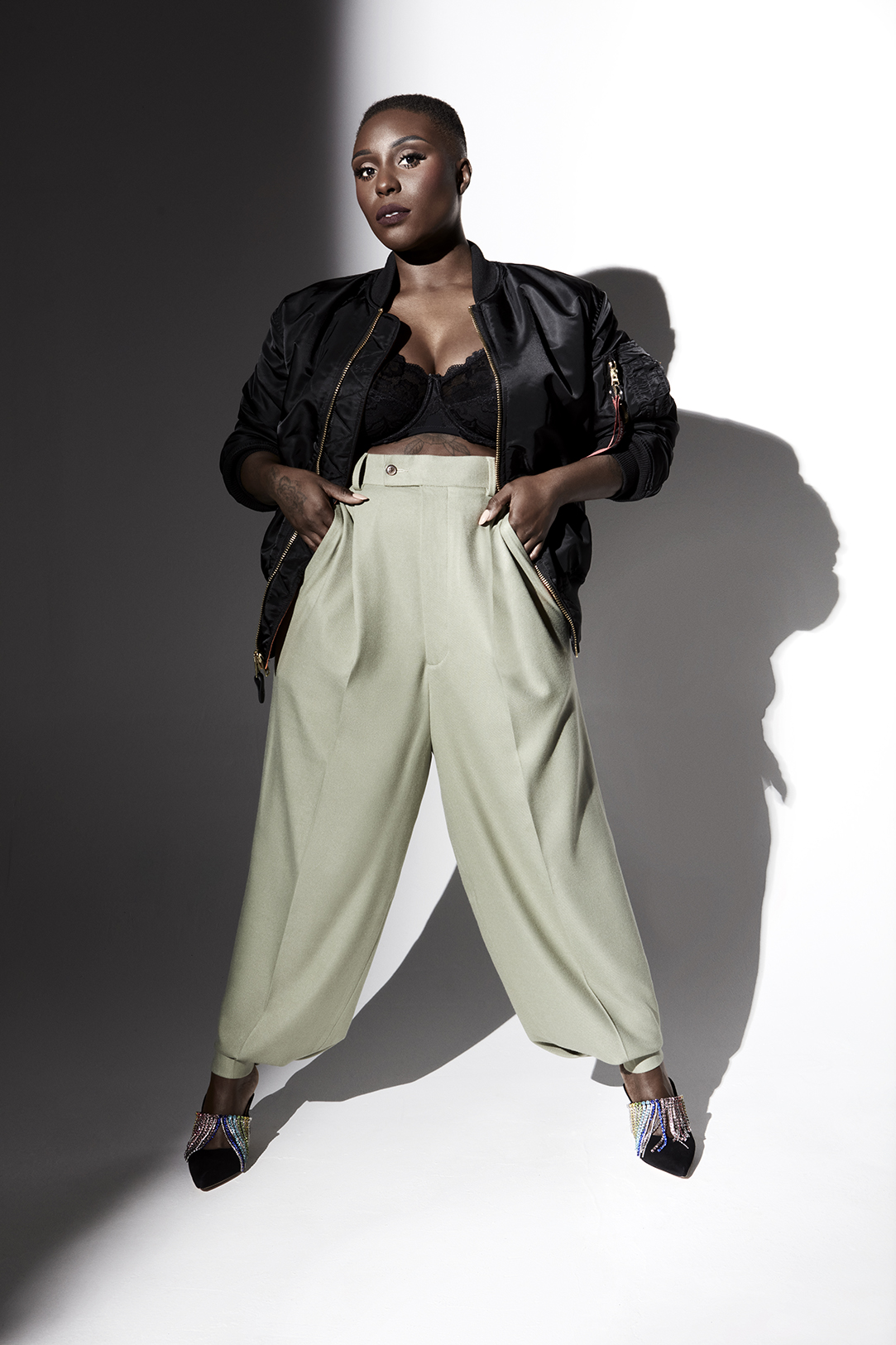 Why are you alluding to noise signals with the EP title 1/f and the album title Pink Noise? Anything deeper behind it?
Why are you alluding to noise signals with the EP title 1/f and the album title Pink Noise? Anything deeper behind it?
I really wasn‘t on board with the idea of this EP. I thought it didn‘t make sense to do my old music before this new album, but then when I realized I‘ve been living in this 1/f and pink noise world all the time. The songs that I chose from my old albums took on this new meaning, they were dressed differently. It was a deliberate move to try to encourage and entice people into my new space. Because of that the album Pink Noise didn‘t come across as a slap in the face, there was preperation for the listener. Also it‘s testament to the fact that it‘s always been like this for me. Sing To The Moon fits so perfectly into this world, because the essence of it is the same. Yes, stylistically it moves, breathes and changes shape, that‘s what happens with all living organisms, that‘s the nature of things. For me it was an important statement, there‘s a bridge here. I haven‘t just decided I‘ve become somebody else. This is a continuation, this is a story, this is a narrative that flows like an ongoing signal.
To wrap this up, could you please explain why Simon Neil is the featured guest singer in What Matters?
The idea for a feature came from the label, but I remember saying to myself: I know that some people will expect something different. Ideas were put to me that I would jump in with another female black singer or rapper, which may still happen at some point. But I‘ve always had an issue since I was young doing things that people expect and satisfying that. So I asked for a rock voice that would fit well with the What Matters aesthetic musically. I feel really privileged actually, because Simon Neil, his reputation not just as an extraordinary musician and artist, but as a human being, his attitude to music making is very similar to what I enjoy and prize over everything else when it comes to getting together with someone to make music. There‘s honesty and gentleness of spirit, there‘s an inner joy at the very core of it and he knew what to do instinctively. I didn‘t tell and give him much direction. He had the song and told me he loved it a lot and I asked him to do whatever he felt, and so he did. In the end he sent what he had done, I think it was a week or so after I had sent the song. It was perfect.


